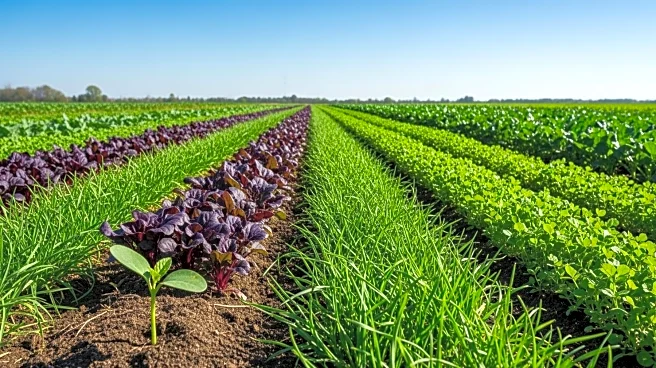What's Happening?
PepsiCo has announced a partnership with the National Geographic Society to launch the 'Food for Tomorrow' program, aimed at promoting regenerative agricultural practices. This initiative seeks to address the unsustainable nature of current global food systems, which contribute significantly to deforestation and soil degradation. The program will focus on restoring soil health and natural resources, with PepsiCo aiming to implement these practices across 10 million acres by 2030. The partnership will also support National Geographic's Explorers in documenting and promoting these practices, and a new 'Building Resilience in Agriculture Fund' will provide grants to projects that apply scientific solutions to real-world agricultural challenges.
Why It's Important?
This collaboration highlights the growing importance of sustainable agricultural practices in combating climate change and ensuring food security. By promoting regenerative agriculture, PepsiCo and National Geographic aim to reduce the environmental impact of food production, which is a major driver of deforestation and greenhouse gas emissions. The initiative could lead to more resilient food systems, benefiting farmers and communities by improving soil health and productivity. Additionally, the program aligns with broader corporate sustainability goals, potentially influencing other companies to adopt similar practices and contribute to global environmental efforts.
What's Next?
The 'Food for Tomorrow' program will continue to develop, with the National Geographic Society planning to release a dynamic data visualization tool showcasing active regenerative agriculture projects. This tool will be available on their website in 2026, providing valuable insights into the outcomes and resilience of these practices. PepsiCo's increased acreage goal and financial support for National Geographic's Explorers suggest a long-term commitment to advancing sustainable agriculture. The success of this initiative could encourage further collaborations between corporations and environmental organizations, driving systemic change in the food industry.











